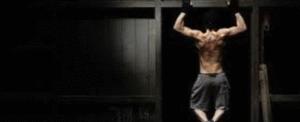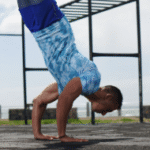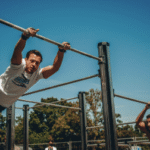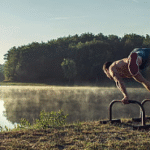Setting Realistic Expectations for Private Calisthenics Progress
Let’s talk in detail about setting realistic expectations for your progress when embarking on private calisthenics training in the USA. Hiring a coach is a fantastic way to accelerate your journey, ensure safety, and receive personalized guidance, but understanding realistic timelines and the factors involved is crucial for staying motivated and enjoying the process.
Starting one on one calisthenics coaching is exciting, filled with the potential to achieve incredible strength, master impressive skills, and transform your physique using your own body weight. While private coaching significantly speeds up progress compared to going it alone, it is essential to approach your journey with realistic expectations. Progress takes time, consistency, and effort both inside and outside your sessions. Understanding this from the outset prevents disappointment and keeps you focused on sustainable development.
Why Progress Varies: Key Influencing Factors
There is no single timeline for achieving calisthenics goals because numerous factors influence how quickly you adapt and progress. These include your individual starting point, meaning your current fitness level, strength, mobility, body awareness, and any previous training experience. Your specific goals matter immensely; learning perfect push up form will happen much faster than achieving a freestanding handstand or a front lever. Consistency is paramount – how often you attend sessions and how diligently you follow any guidance or practice between sessions directly impacts results. Genetics play a role in muscle building potential, flexibility, and limb leverages. Age can influence recovery capacity, although significant progress is possible at any age with smart training. Crucially, lifestyle factors outside your training sessions, such as getting adequate quality sleep for recovery, fueling your body with appropriate nutrition, managing stress levels, and your overall daily activity level, significantly impact your body’s ability to adapt and get stronger. Finally, the expertise of your coach in designing effective programs and providing quality feedback also influences your rate of progress.
Understanding the Timeline: What to Expect When
While highly individual, we can outline general phases and expectations:
The Initial Months (Typically 1 to 3 Months): This phase focuses on building a solid foundation. Expect to work heavily on mastering the correct technique for fundamental movements like squats, push ups, rows, planks, and hangs. Your coach will assess your mobility and stability, addressing limitations with specific drills. You will build basic strength, improve work capacity, and enhance your mind muscle connection and body awareness. You should start feeling stronger and more controlled in these basics. Significant visible physique changes or mastering intermediate skills are generally not the primary focus or outcome in this early stage for most beginners. Consistency is the main goal here.
The Intermediate Stage (Typically 3 to 12+ Months): With a foundation laid and consistency established, progress often becomes more noticeable. You will likely be working on more challenging variations of foundational exercises, applying progressive overload consistently. This is often when individuals achieve milestones like their first unassisted pull up or dip, hold a wall supported handstand more comfortably, or make significant gains in strength and muscular endurance. You might start dedicated work on progressions for intermediate skills like L sits, pistol squats, or potentially basic lever and muscle up drills if appropriate. Noticeable changes in muscle definition can also occur during this phase.
Advanced Skill Acquisition (Often 1+ Years): Achieving high level calisthenics skills such as a stable freestanding handstand (held for time), front lever, back lever, planche, or human flag requires significant dedication, specific training, and patience. Progress is often measured in small increments over long periods, sometimes taking years of consistent, focused practice. Setbacks and plateaus are normal and expected when working on these advanced feats.
Progress Is Not Always Linear
It is important to understand that progress rarely happens in a perfectly straight line. You will likely experience periods of rapid improvement followed by times where progress seems to slow down or stall (plateaus). Plateaus are a normal part of the training process as your body adapts. A good coach will help you navigate these by adjusting your program, introducing new stimuli, or focusing on different aspects of your training. Remember that progress is not just about achieving a new skill or higher reps; improvements in form, control, movement quality, and how you feel are also significant measures of success.
The Role of Private Coaching in Progress
Private coaching provides the optimal environment to progress faster and safer than you likely could alone. The personalized plan targets your specific needs, expert feedback corrects technique immediately, appropriate progressions minimize injury risk, and accountability keeps you consistent. However, coaching accelerates the natural process; it does not eliminate the need for time and biological adaptation.
Focus on Consistency and the Process
Rather than fixating solely on achieving a difficult end goal immediately, focus on the process. Concentrate on showing up consistently for your sessions, putting in quality effort, listening to your coach’s guidance (including advice on sleep and nutrition), and celebrating the small victories along the way. Enjoy the journey of learning what your body is capable of.
Communicating with Your Coach About Expectations
Maintain an open dialogue with your coach. Discuss your expectations for progress and listen to their realistic assessment based on your starting point and commitment level. If you feel progress is stalling or have concerns, talk to them. They can help adjust the plan or reframe your perspective.
Conclusion
Private calisthenics training in the USA offers a fantastic and effective path to achieving a wide range of impressive fitness goals. Setting realistic expectations from the start is key to a positive and sustainable journey. Understand that progress depends on numerous factors beyond just having a coach and that consistency, patience, and dedication to both training and recovery are essential. While private coaching significantly accelerates and optimizes the process, allow yourself the time needed to adapt and improve. Focus on the journey, communicate openly with your coach, and celebrate every step of progress you make.

Setting Realistic Expectations for Private Calisthenics Progress
Route
Calisthenics Gym Houston Functional Bodyweight Training
Secondary phone: (346) 483-3195
Email: info@calisthenicsclubhouston.com
URL: https://calisthenicsclubhouston.com/
Monday 6:00 AM - 7:00 PM Tuesday 6:00 AM - 7:00 PM Wednesday 6:00 AM - 7:00 PM Thursday 6:00 AM - 7:00 PM Friday 12:00 PM - 6:30 PM Saturday 9:45 AM - 12:00 PM Sunday 3:00 PM - 5:00 PM





